How to Perform Power Cleans from the Hang – Fast and Simple Technique

How to Perform Power Cleans from the Hang
Fast and Simple Technique
Jim Smith, CSCS, RKC
Some of the most debated and misunderstood exercises in strength programs are the Olympic lifts; the clean & jerk and the snatch (we could also probably group in all of the transitional exercises too).
Some coaches don’t use Olympic lifts because of the training curve and potential shoulder issues from racking the bar and some coaches swear by them and say that they are safe and can be learned through repetition.
Years ago I went and got the USAW Club Coach certification. But like most certifications, only “under the bar” experience allowed me to learn and teach the techniques.
Most strength coaches utilize Olympic lifts to develop explosive strength through triple (ankle, knees and hips) extension. I used to believe this as well. Not until I wrote the Chaos manual and collaborated with James Smith (The Thinker) that I had an epiphany. James stated something very profound.
“Olympic lifts (and variations) do develop speed-strength if they are performed proficiently”
CHECK OUT THE REST OF THIS AWESOME POST AFTER THE JUMP
This is a fact and we’ve seen it in tons of videos across YouTube.
How many times have you seen a slow clean or a clean where there wasn’t full extension?
Bottom line is that the lifts can be used to develop real strength and can be done safely. The problem is that most times, the weights are progressed too fast or the volume is too high.
If you do have an issue with performing the movements with a barbell, a simple substitution can be done with kettlebells, sandbags or dumbbells.
I asked my friend Tom Tryon, an accomplished weightlifter, to help us with the series. Tom has been weightlifting for many years and has awesome technique.
How to Perform a Power Clean from the Hang
The variation of the full squat clean that is most always used in the weightroom by non-weightlifters is the power clean from the hang. This is because it is a static position that requires great isometric posterior chain strength, reinforces a proper athletic stance AND great starting / explosive strength. By taking the 1st pull out of the movement, you shorten the range of motion (ROM) and increase the required power and speed at the start.
Step 1: Grab a Hook Grip

Step 2: Get in a Good Starting Position

Step 3: Rotate the Elbows Outward

Step 4: Move Into the Hang Position (High Thigh)

Step 5: Extend Powerfully and Rack the Barbell

 |
 |
By Smitty on March 25th, 2011
FREE DIESEL NEWSLETTER
- Discover Pain Free, Joint-Friendly Training
- Get Super Effective Workouts and Programs
- Inspirational Life Lessons Each Week
- Effective Habits For Busy Entrepreneurs




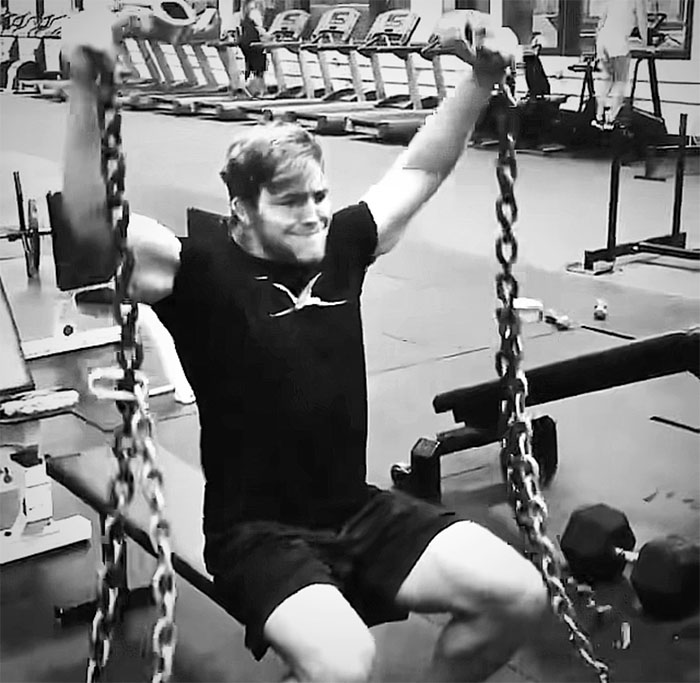
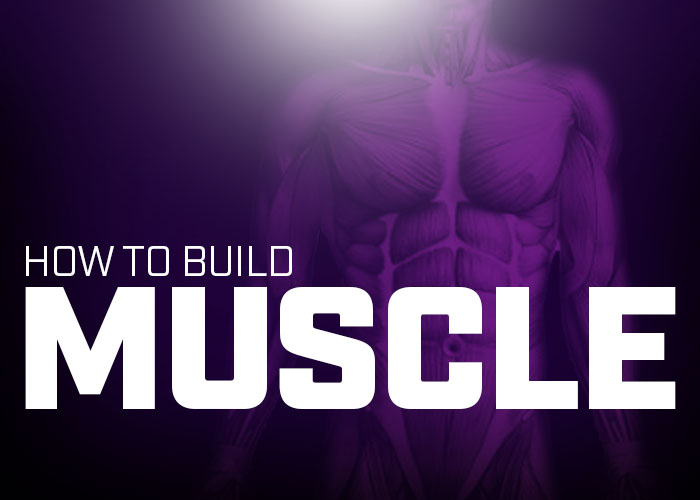
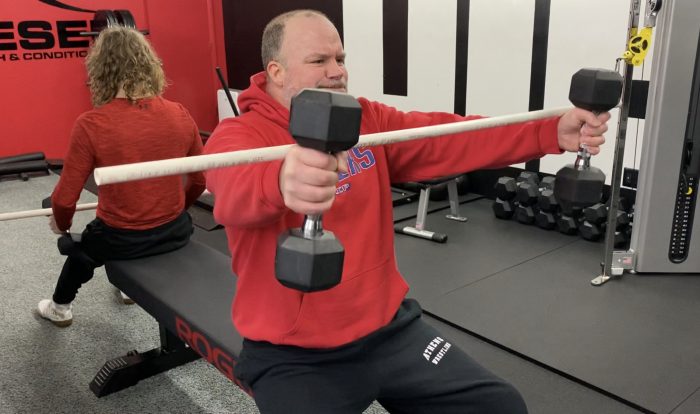
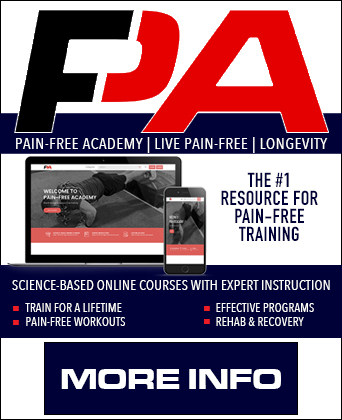

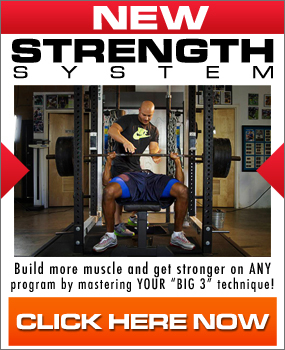
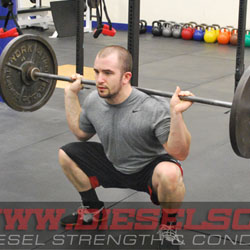


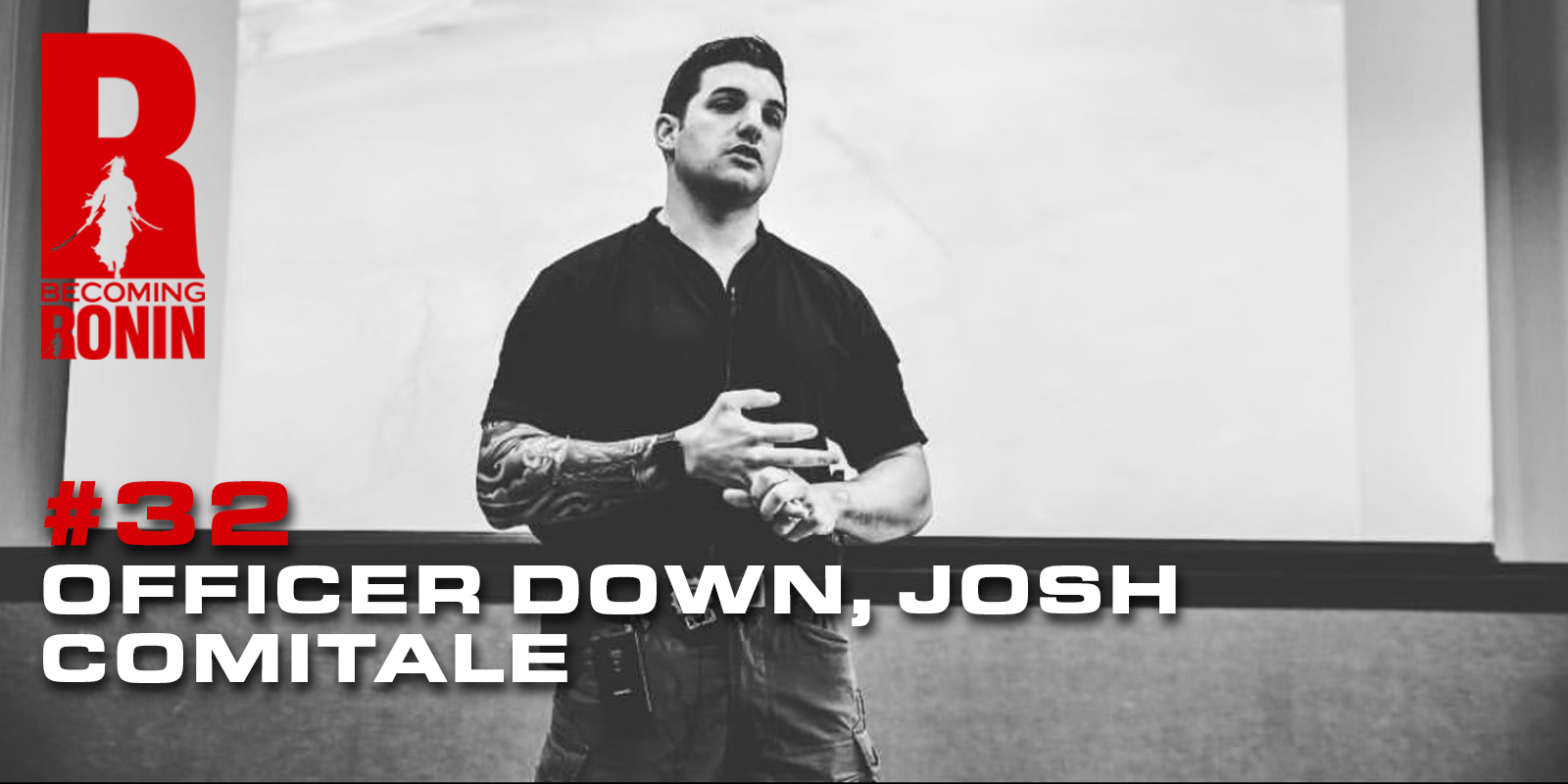
Thanks Smitty! Probably the best breakdown of the clean I’ve read.
Nice video! Thanks for the great post Smitty. I am loving your blog at the moment. Always fresh with new content. Keep it up bro.
Smitty,
This is a great topic to discuss as the Olympic lifts are usually the most difficult to learn. One thing I would like to add to this, which is also what most of my freshmen athletes do wrong with cleans is performing an exaggerated reverse curl. Teaching what I call the “shoot” is the most complicated part of the exercise. Teaching the elbows to rotate out is important but many athletes will quickly rotate them and then try to pull the bar into a reverse curl. Counter this by instructing a high pull tracking movement (all power coming from the legs/hips) and then “pull themself under the bar”, to many times most, that are learning, are pulling the bar on to them. Follow this up by instructing them to drop into a decelerating front squat. This will place the weight back onto the hips and prevent a novice to overload the low back.
This is just some teaching ques that I use. Hope that helps everyone.
I never would have known to rotate my elbows out. Thanks.